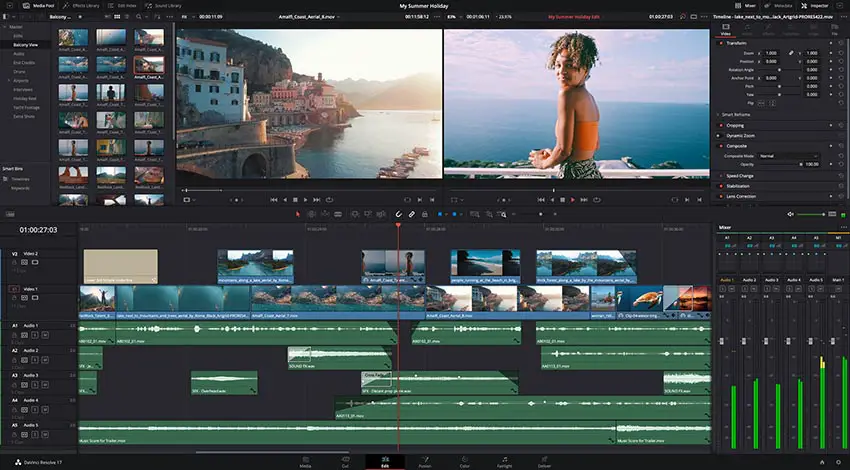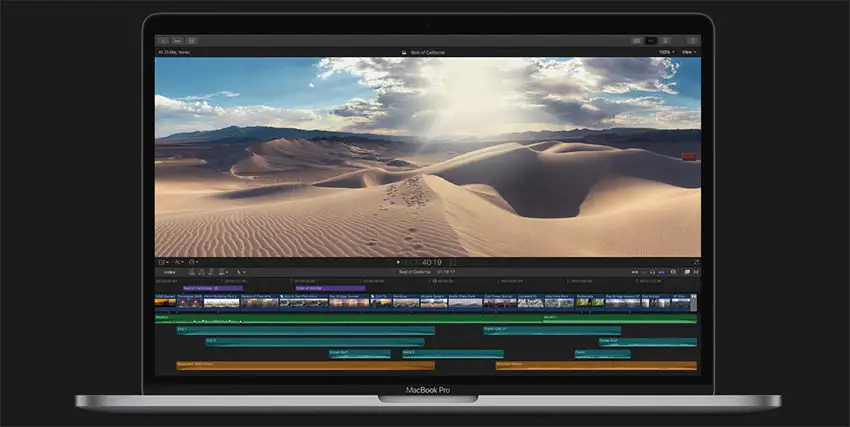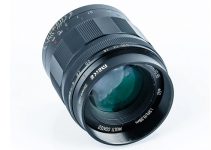The M1 Macs just keep getting better. Software is truly starting to show its potential and getting impressively updated to take advantage of the new chip architecture. Blackmagic Design is getting in early to the M1 chip game with a constant stream of updates for DaVinci Resolve.
Most recently hitting version 17.3, Resolve might actually be challenging Final Cut for most optimized NLE on Mac. For more details on how well Resolve works (and where it still might need a little more work) in this latest version check out this video from Max Yuryev who runs everything through another set of tests.
Max actually uses practically the base MacBook Air for his daily use – the one with only 8GB RAM. For the money it is undeniably a powerful machine, but it is still surprising to see video editing performance be good and continue to get better. Resolve even claims 8K editing on the M1 chip.
Final Cut has been great since the launch of the M1, Premiere is iffy at best, and Resolve has been doing a good job. But can Resolve now take on Final Cut directly?
From initial tests and the benchmark projects in Resolve, Max is noticing that the GPU use is lower, indicating that optimizations are definitely better. The initial test with a 5 minute 4K H.264 export is down to just 3 minutes 9 seconds. That’s basically in line with Final Cut and a two and a half minute improvement over the previous version of Resolve.
Stabilization is up next and it took 30 seconds compared to a previous speed of 37 seconds. It’s an improvement for sure, though maybe not as big as hoped as Final Cut only took 9 seconds. However, Resolve uses a different technique that some people will attest does a better job.

Image Credit: Blackmagic Design
Moving to H.265/HEVC footage is a massive improvement, no doubt thanks to better use of the hardware decode/encode. A 5 minute 4K 8-bit HEVC export took just 1 minute 23 seconds, seriously beating out Final Cut’s 2 minute 25 second time. HEVC is definitely ready for primetime now.
Next is a tough test, pulling in four 4K files into the same timeline as a splitscreen. Playback is a little choppy and it is maxing out the graphics. Even still, the export is speedy, taking 1 minute 12 seconds and matching Final Cut exactly. This is showing that Resolve is able to take advantage of the same optimizations as Final Cut.

Image Credit: Apple
Even 4.5K REDCODE RAW footage is playing back buttery smooth. Even with a LUT and some grain overlay. Exports for a 5 minute clip come to 14 minutes 47 seconds compared to Final Cut at 14 minutes 39 seconds. Essentially the same. Plus, the MacBook Pro might actually get even better performance if you consider that.
And now for an 8K test. Here is where some issues pop up. Working with 8K in an 8K timeline was super choppy. Even bumping down to a 4K timeline has problems. Finally, heading to quarter resolution does the trick for something workable.
This is an amazing update for everyone using Resolve. The M1 MacBooks and hopefully upcoming Apple Silicon releases will again revolutionize video editing performance for affordable computers.
Have you upgraded your machines to Apple’s M1 lineup?
[source: Max Yuryev]
Disclaimer: As an Amazon Associate partner and participant in B&H and Adorama Affiliate programmes, we earn a small comission from each purchase made through the affiliate links listed above at no additional cost to you.



